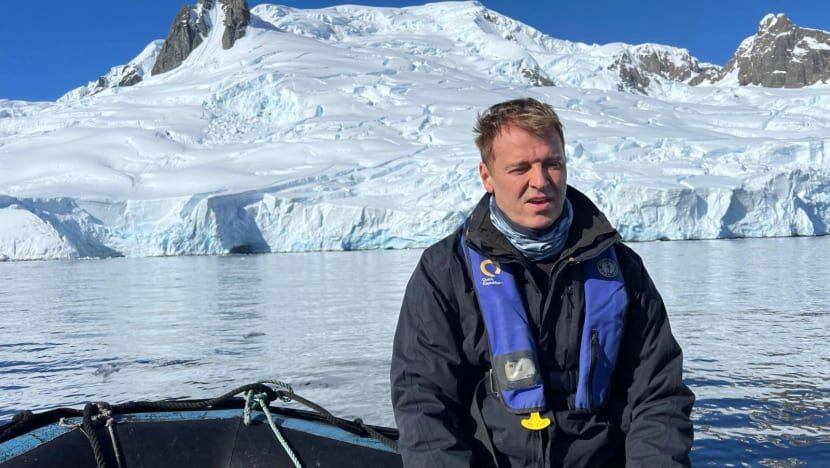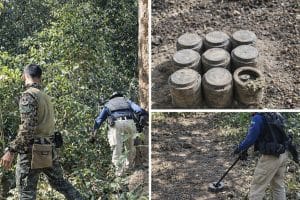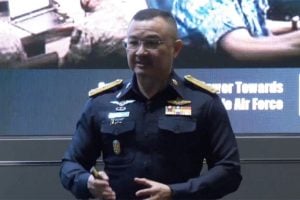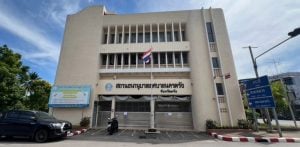Scientific expedition to Antarctica reveals surprising temperatures and climate impact on Singapore

Standing on an ice sheet with only a t-shirt on his back, 52-year-old Professor Benjamin Horton certainly did not expect such weather during his trip to Antarctica. “The first couple of days, the weather was amazing. The oceans were like a mirror. We had wildlife, humpback whales, popping out (of the ocean),” said the director of the Earth Observatory of Singapore. “I was overdressed.” The region experienced around 15 degrees Celsius in the afternoon, which was not the type of temperature one would expect to face in the South Pole.
Antarctica is the coldest, driest, and windiest continent on the planet. However, summer days can be surprisingly mild and unpredictable. Their next day began with poor weather conditions that prevented the team from disembarking from the boat.
Professor Horton and 26-year-old PhD student Tan Fang Yi were part of a Singapore scientific expedition to Antarctica to study sea level rise. Their work included sampling past ice temperatures to make better projections of Antarctica’s glacier tipping point, known as the marine ice sheet instability. Once the threshold is crossed, scientists believe that efforts to cut greenhouse gas emissions back to pre-industrial levels may no longer be enough.
“Every low-lying coastal nation will be influenced by what’s happening at the poles. That ice sheet has enough water contained within its ice to raise global sea levels in excess of 60 metres. And when a third of Singapore is only one metre above high tide, you can see why it’s important,” said Professor Horton.
During the trip, the scientists also collected samples of Antarctica’s air and ocean water to better understand how it can help regulate the Earth’s climate. They faced several challenges while conducting their experiments, including the need to work around harsh weather conditions and keeping their footprint on the pristine landscape as minimal as possible.
Tan Fang Yi emphasised the importance of being flexible and resourceful during the expedition, stating, “I realised how flexible we have to be when trying to conduct experiments because we really have to work around the conditions and the weather. It’s not like in Singapore where I know (when) low tides are coming.”
Despite the challenges, visiting Antarctica was an important opportunity for the team. “For scientists like ourselves, having the opportunity to go to Antarctica really cannot be missed. But do people need to go to Antarctica to see climate change? No, they just need to think about how hot it is in Singapore,” said Professor Horton.
To find out more about the scientific expedition to Antarctica and the researchers’ experiences, listen to their conversation with Julie Yoo in The Climate Conversations podcast.
Latest Thailand News
Follow The Thaiger on Google News:


























